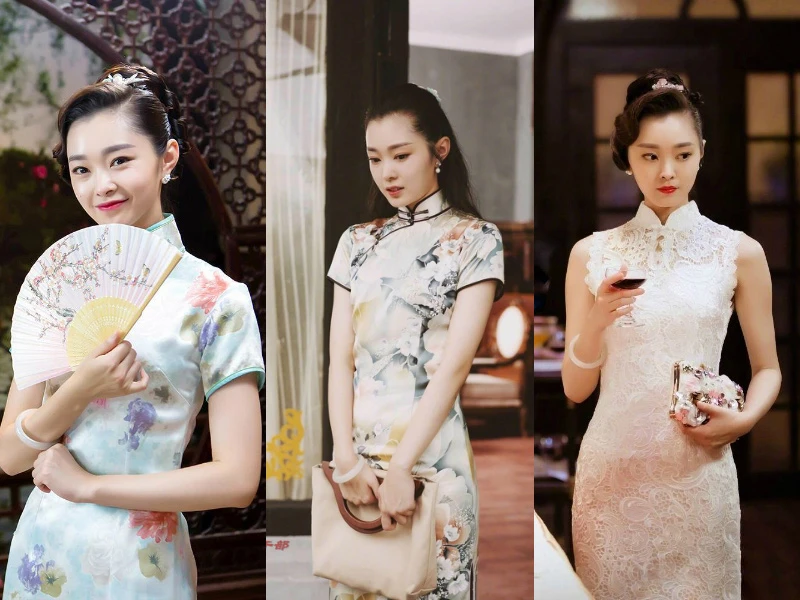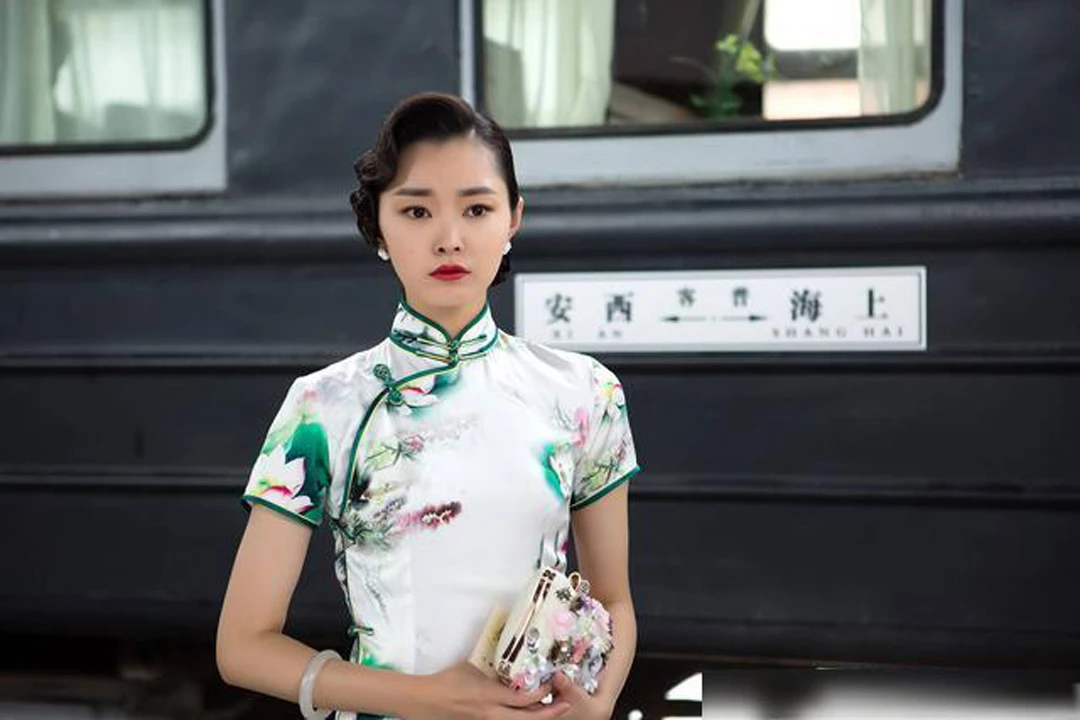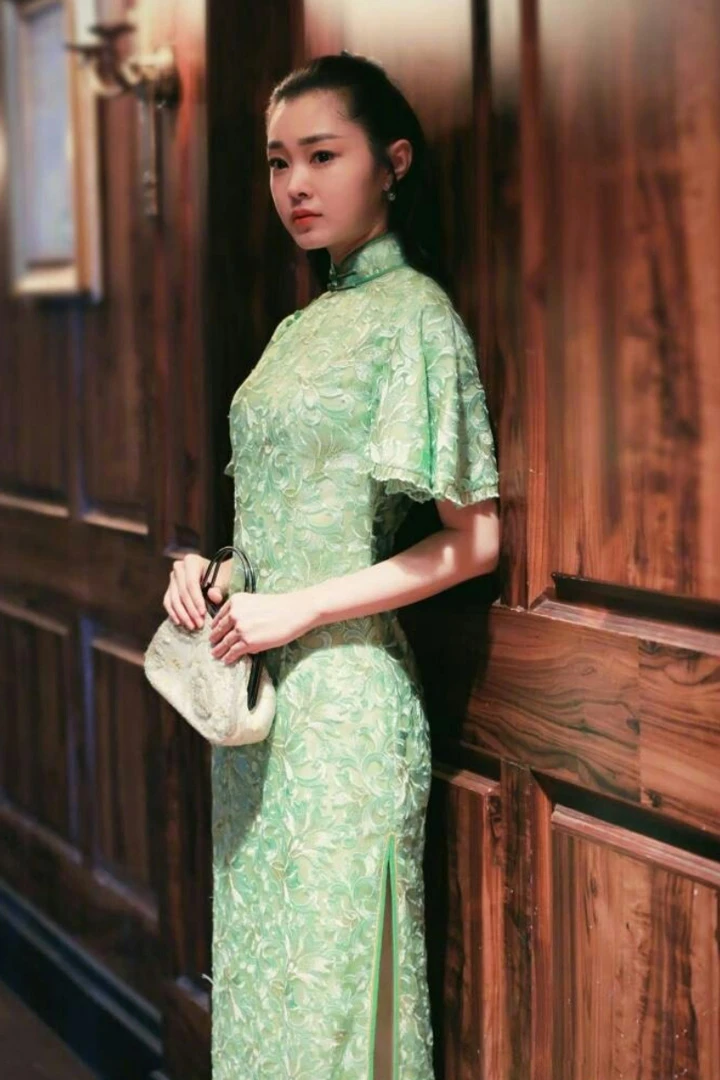In the entertainment world, actress Song Yi has garnered widespread acclaim for her exceptional acting skills and her ability to embody period characters with authenticity and grace. Recently, her appearance on a television program, donning a qipao (traditional Chinese dress) exuding classical charm, ignited a frenzy of admiration and discussion online. As one reflects on her portrayals of ancient beauties in various television dramas, it’s no wonder her fans are captivated by this latest embodiment of timeless elegance.
Throughout her career, Song Yi has demonstrated an unparalleled mastery in portraying characters from bygone eras. Whether portraying gentle and virtuous women, charming and alluring personalities, or commanding and authoritative figures, she seamlessly slips into each role with ease. Her refined and ethereal beauty, coupled with her impeccable acting prowess, is the key to her ability to bring ancient female characters to life with such authenticity.
A retrospective of Song Yi’s iconic roles reveals her unique talent in interpreting traditional Chinese attire. On screen, she effortlessly transforms into her characters, wearing qipaos, form-fitting dresses, and various other historical garments with an air of natural grace. Her elegant demeanor, subtly infused with a hint of playfulness, transports viewers through time, unveiling a captivating vision of a radiant beauty from ancient times.

Her latest qipao appearance has left fans in awe, with the exquisite cloud-patterned brocade perfectly complementing her noble and refined aura. Adorned with an intricate updo and delicate makeup, Song Yi embodies the essence of a refined lady from a bygone era. Some have even joked that it’s no wonder she excels at portraying ancient beauties, as she herself seems like a reincarnation of classical perfection.
Song Yi’s embodiment of the qipao also serves as a symbolic fusion of Eastern and Western cultural influences. The design of the qipao, blending Chinese and Western elements, mirrors her ability to seamlessly integrate the traditional grace of Eastern femininity with the independent allure of the modern career woman. Perhaps this unique charm is the secret behind her versatility in portraying characters across eras.
The union of Song Yi and the qipao is akin to a serendipitous encounter transcending time and space. A contemporary actress adorned in a garment popular centuries ago, she effortlessly blends the essence of the classical and the modern. One cannot separate her from the image of an ancient beauty, yet her presence exudes the confident allure of a contemporary, intellectual woman. This harmonious juxtaposition of contrasting qualities is the very essence of her captivating appeal.
Upon closer inspection of Song Yi’s qipao ensemble, one witnesses the seamless integration of Eastern and Western cultural elements, radiating a vibrant and multifaceted charm. The understated elegance and gentle grace she exudes are a manifestation of the quintessential spirit of traditional Chinese culture. Yet, she imbues this timeless aura with a contemporary vitality, perfectly embodying the independent spirit of the modern woman.
In Song Yi, the ancient and the modern, the East and the West, converge in a remarkable fusion that transcends temporal and spatial boundaries. Through her impeccable portrayal, she personifies the traditional virtues of Chinese womanhood while seamlessly incorporating the self-assurance and independence of the modern career woman. This intriguing cultural collision lends her classical beauty a unique and captivating allure.
Some fans have playfully speculated that upon witnessing Song Yi’s resplendent qipao appearance, one might question whether she truly belongs to the present era. Her exceptional acting skills and authentic embodiment of ancient grace make it challenging to separate her from the characters she portrays in period dramas.
Remarkably, Song Yi exudes the traditional essence of Eastern femininity while simultaneously embracing the independence and confidence of the contemporary career woman. In her, one witnesses the perfect amalgamation of the ancient beauty and the modern fashionista.
This seamless blend of vintage and modern sensibilities may very well be the secret to her mastery in portraying diverse roles. Whether embodying a graceful figure straight out of a classical painting or a spirited, contemporary trendsetter, Song Yi navigates each character with ease and finesse.
Song Yi’s qipao appearance has rightfully ignited widespread admiration, standing as a rare and captivating sight in the entertainment industry. In her, one witnesses the captivating fusion of Eastern and Western cultures, ancient and modern aesthetics. This unique amalgamation of contrasting qualities is undoubtedly a key factor in her ability to captivate audiences and garner legions of devoted fans.
Beyond the visual allure of her qipao ensemble, Song Yi’s portrayal also serves as a poignant reminder of the enduring legacy of Chinese cultural heritage. The qipao, with its roots dating back centuries, has undergone numerous transformations and adaptations, yet it remains an iconic symbol of Chinese femininity and grace. By donning this timeless garment, Song Yi pays homage to the rich tapestry of Chinese history while simultaneously infusing it with a contemporary flair.
Moreover, her embodiment of the qipao transcends mere fashion and becomes a celebration of the resilience and adaptability of Chinese culture. Just as the qipao has evolved and adapted to changing times, Song Yi’s portrayal showcases the ability of traditional elements to seamlessly integrate with modern sensibilities. This harmonious coexistence of the ancient and the contemporary is a testament to the enduring relevance and universal appeal of Chinese cultural traditions.
Through her captivating performance, Song Yi has not only enchanted audiences with her impeccable acting skills but has also ignited a renewed appreciation for the qipao and its cultural significance. Her portrayal has sparked conversations and reignited interest in this iconic garment, inspiring a new generation to explore and embrace the rich heritage it represents.
In a world where cultural identities are often challenged by the forces of globalization, Song Yi’s qipao appearance serves as a powerful reminder of the importance of preserving and celebrating one’s cultural roots. By embodying the essence of the qipao with such grace and authenticity, she has become a cultural ambassador, bridging the gap between the past and the present, and inspiring a deeper understanding and appreciation of Chinese cultural heritage.
Furthermore, Song Yi’s portrayal has the potential to transcend cultural boundaries and resonate with audiences worldwide. The qipao’s timeless elegance and the universal appeal of feminine grace have the power to captivate and inspire people from diverse backgrounds. Through her performance, Song Yi has opened a window into the rich tapestry of Chinese culture, inviting viewers to explore and appreciate its depth and beauty.
In the end, Song Yi’s qipao appearance is not merely a fashion statement or a fleeting trend; it is a powerful celebration of cultural identity, a testament to the enduring allure of Chinese femininity, and a bridge that connects the ancient and the modern, the East and the West. Her portrayal serves as a reminder that true beauty and elegance transcend time and cultural boundaries, and that the preservation and appreciation of cultural heritage are essential for fostering a deeper understanding and respect among peoples.
As Song Yi continues to captivate audiences with her exceptional talent and timeless charm, her qipao appearance will undoubtedly remain a cherished and iconic moment, a celebration of the enduring power of Chinese culture and the universal language of beauty and grace.


